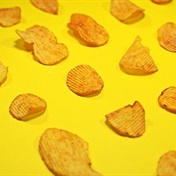New research results published in a recent edition of the Arbor Clinical Nutrition Updates (2007) shed new light on this association. Basically we need to increase our intakes of potassium and magnesium, and decrease our consumption of sodium to reduce the risk of hypertension, stroke and heart disease.
New studies
The Arbor Clinical Nutrition Updates (2007) report that in one study conducted in a veteran's retirement home in the USA, the use of a potassium-enriched salt instead of standard table salt, caused a 40% reduction in death due to heart disease and even reduced the amount of money that had to be spent on caring for heart disease patients by more than $400 per year. Such a simple solution and such dramatic results!
In a second study with more than 9000 patients who were exposed to a high risk of developing heart disease, those individuals who had low potassium levels were much more likely to suffer from a heart attack than the subjects who had high potassium levels.
Lower sodium intake
One of the most important factors in controlling high blood pressure is to reduce the patient's intake of sodium. This is particularly important in people who are classified as salt-sensitive.
In America it has been found that Afro-Americans tend to be more salt-sensitive than white people and in South Africa our black population also seems to be more sensitive to high salt intakes than other population groups. Hypertension is one of the major disease risks in black South Africans.
The following dietary adjustments help to lower salt intake:
- Avoid adding table salt (sodium chloride) to foods during cooking, and at table
- Avoid all other spices that contain sodium, such as garlic salt, Aromat, and stock cubes
- Avoid salted, cured meats like biltong, ham, corned beef or spicy sausages
- Avoid salty snacks such as chips
- Avoid all condiments (especially soya sauce) and pickles that have a high sodium content
- Read the labels of all processed foods to check if they contain salt, table salt, sodium chloride or mono-sodium glutamate (MSG) and avoid those foods that have a high sodium content like soup powders
- Replace table salt with a potassium-containing salt instead (buy at health shops and some supermarkets)
Increase potassium intake
Numerous studies indicate that increasing potassium intake can protect against the negative effects of cardiovascular disease including death, stroke, high blood pressure, irregular heart beats known as arrhythmia and kidney complications.
Foods that are rich in potassium include the following:
- fruit and vegetables
- legumes (dry cooked beans, peas, lentils, soya products)
- lean meat and fish
- low-fat milk products
- peanut butter
- potassium salt
- potassium supplements
By increasing your intake of these foods, you will also benefit from the high vitamin, phytonutrient and mineral contents of fruits, vegetables, legumes and low-fat milk products.
If you are taking so-called 'Potassium sparing diuretics' then you need to check with your doctor or pharmacist if you need to increase your potassium and particularly if you require potassium supplements. In some cases, the use of potassium supplements is contraindicated when patients are receiving potassium sparing diuretics.
Certain conditions such as renal failure tend to increase the potassium levels in the body and such patients should not take potassium supplements. These patients should have a diet prescription worked out for them by a clinical dietitian to ensure that they do not ingest too much potassium.
Increase magnesium intake
Magnesium is another cationic mineral that is believed to protect the body against heart disease and its negative consequences.
Foods rich in magnesium include the following:
- unprocessed or whole grains and cereals
- nuts
- legumes
- lean meat
- low-fat milk and dairy products
- fruit and vegetables
- magnesium supplements
It is interesting that the DASH Diet that was developed in the USA to lower raised blood pressure levels is based on a high intake of fruit, vegetables, low-fat milk and dairy products and whole, unprocessed grains. Consequently this diet ensures high potassium and magnesium intakes, while reducing sodium intake considerably.
Eating simple diets that avoid the use of processed food and hark back to what our ancestors ate, is an excellent idea. Concentrate on avoiding high-salt, high-fat processed foods and snacks and eat more fresh fruit, especially berries, vegetables, fat-free milk, yoghurt or cottage cheese, lean meat in moderation and fish at least 3 times a week, with nuts and dried fruits as healthy snacks to lower bp and prevent heart disease and its negative consequences.
If you suffer from high blood pressure or heart disease it is a good idea to start increasing your potassium and magnesium intakes, while cutting back on sodium. However, always check with the doctor who is treating you before you take potassium and magnesium supplements to make sure that these supplements don't interfere with any medications you may be taking (e.g. diuretics).
What do you think about the Topic "Potassium, Magnesium, Sodium & Heart Disease"? If you have any diet queries, post a question or message on The Message Board. I am here to assist you with your Diet and Food Choices, so let's interact. Remember, I really care about you.
(Dr I V van Heerden, DietDoc, Health24, January 2007)
Reference
(Arbor Clinical Nutrition Updates, 2007. Potassium intake and heart disease. Edition 267:1-3)




 Publications
Publications
 Partners
Partners














